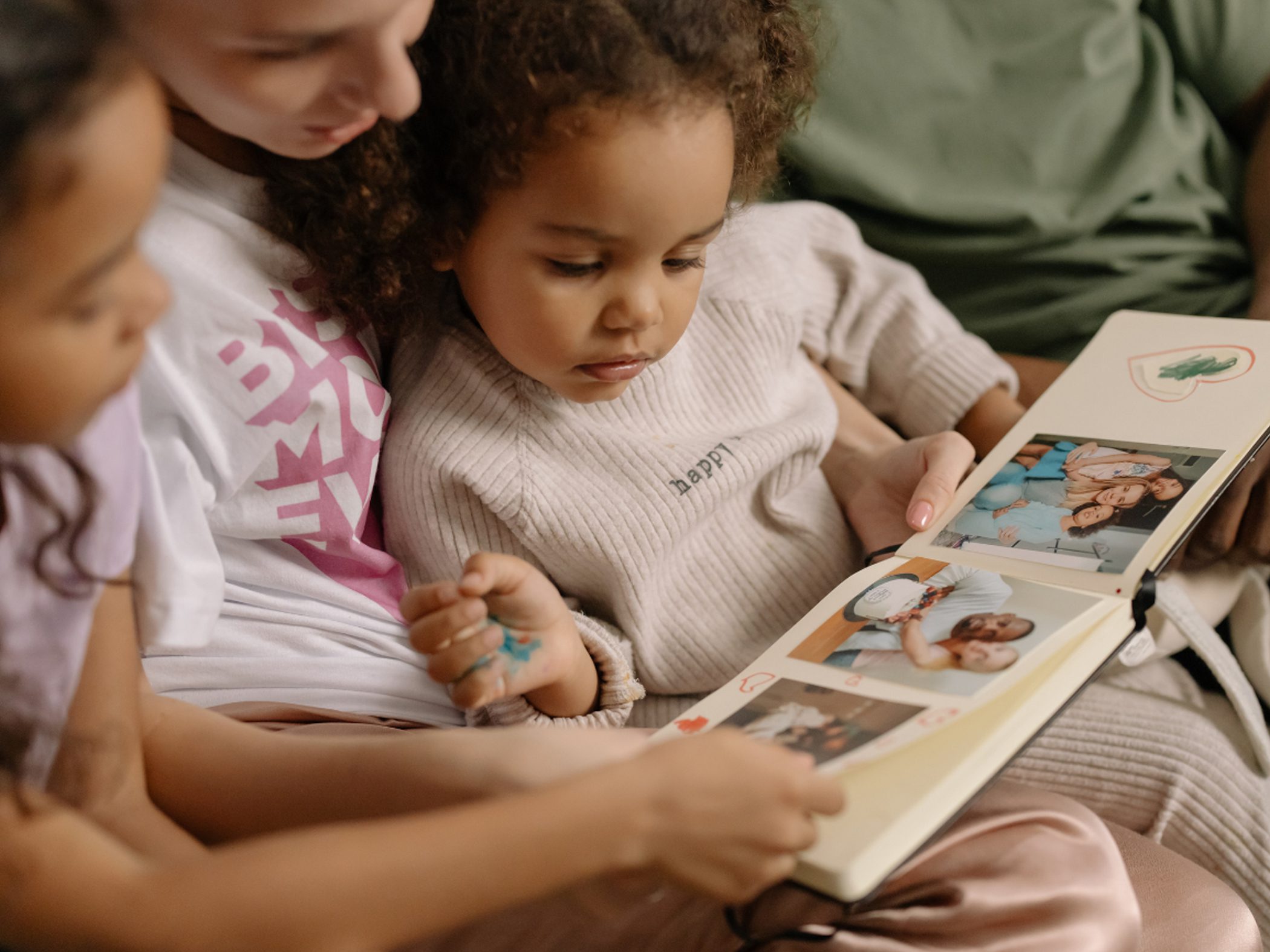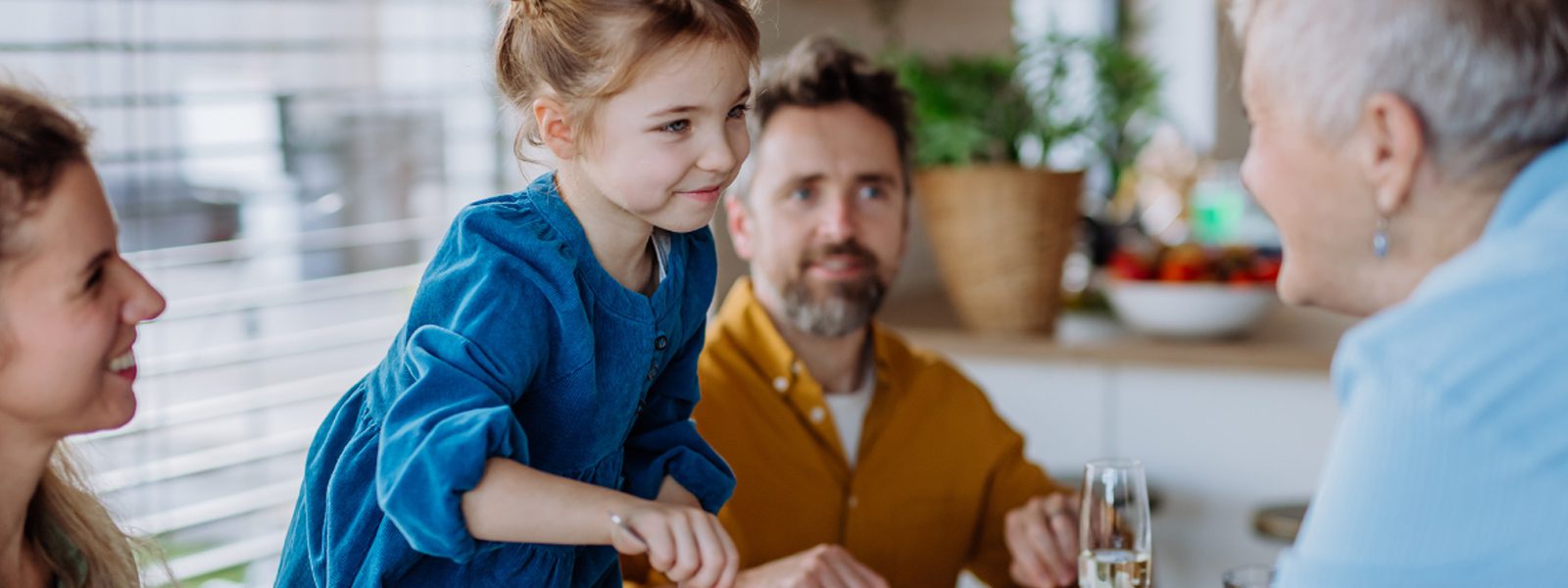If someone were to ask what your most cherished family tradition is, what is the first one that comes to mind? Is it something that revolves around a holiday, such as wearing matching Christmas pajamas or dyeing Easter eggs? Do you recall one that’s season-specific, such as going on a summer vacation every year? Perhaps you remember a tradition special and unique to your own family unit, such as a secret recipe your household would make for every family get-together. Whether your family has/had few traditions or many, thinking of them likely creates a sense of nostalgia and pride toward your family.
One of my personal, most cherished family traditions is joining my out-of-state family members for a week-long reunion every five years. My mother’s mother began this tradition decades ago as a way to get all of her children and grandchildren under one roof for a summer vacation – we’re spread throughout the country and this has always been our one consistent opportunity to all be together. Each time we reunite, the grandchildren are bigger, the number of family members has increased, and we all have so much catching up to do. This tradition has given us the opportunity to explore Kansas, Colorado, Utah, Wyoming and South Dakota as a family and create such cherished memories together.
Big or small, family traditions have the ability to leave a lasting positive impact on those involved. One of the most beautiful aspects of family traditions is that it’s never too late to start one! Once you start a family tradition, it has the potential to become a part of your family’s legacy and to live on in the generations to come. Let’s discuss some reasons family traditions are important.
Family Traditions Shape Cultural and Personal Identity

Family traditions can be rooted in culture, religious values, personal beliefs, or a fun memory. When carried on, traditions serve as impactful reminders of what has shaped your family and become a part of your family’s history. Having positive stories to share about one’s family history directly helps establish a person’s core identity by allowing them to have an idea of where they come from and how they fit into their own family. Psychology Today references a Family Narratives study in their findings that having intergenerational narratives, such as stories about their parents, leads to higher self-esteem, competence, and fewer behavioral problems in adolescents.
My own memories of family reunions with my mother’s side of the family have taught me the value of quality time with family and have led me to create that same culture within my own household. I would often go five years without seeing my cousins, aunts, and uncles, but when we’d reunite it was as if no time had passed at all. We’d cling to every moment together that we could, staying up until all hours of the night to catch up, play games together, and simply enjoy one another’s company. Today, I live in a separate state from my own siblings and parents but have such a deeply rooted appreciation for my family that I am able to share with my own children. My sons, aged 5 and 7, look forward to yearly trips to see my side of our family and spend the gaps between visits reminiscing about the fun memories they’ve made. We also have the advantage of utilizing video calls to ‘see’ our family members, and have even adapted to playing games with our family virtually so we can continue to spend time together even when we’re 1,200 miles apart. My hope for my own children is that these traditions and rituals that they’ve inherited from their family will help build their self-esteem and teach them more about what our family values are.
Family Traditions Strengthen Family Bonds and Connections

As an adult, I can fondly look back on the many family reunions that I enjoyed with my out-of-state family members. I learned from these experiences that geography doesn’t have to determine how connected a family is. This tradition that my grandmother started became something for our entire family to look forward to and provided so many opportunities for us to connect when together. Those connections didn’t disappear between reunions, but only got stronger each time we were together again.
Establishing and carrying on family traditions strengthens bonds between family members by providing opportunities for multiple generations to connect over values, family history, culture, and so much more. In an ever-changing world and fast-paced society, having traditions to cling to allows for consistency and stability in your life. Traditions that become ‘rituals’ in a family, such as Christmas, reunions, Thanksgiving, or Sunday dinners, have been proven to be “powerful organizers of family life that offer stability during times of stress and transition,” according to the American Psychological Association. This consistency that traditions and rituals provide also builds trust and confidence between family members.
In addition to the well-balanced meals prepared in each of our St. John’s United communities, we are intentional about promoting overall health and wellness. A variety of wellness classes are available to our residents and the local community, and our on-staff nutritionists provide educational presentations to encourage balanced diets while enjoying the treats we all know and love. If you are interested in learning more about how St. John’s United promotes physical, emotional, intellectual, social, spiritual, environmental, and occupational wellness in our communities and to the public.
Family Traditions Improve Emotional Health and Well-Being

Family rituals are “alive and well,” according to the American Psychological Association’s Journal of Family Psychology. Studies found that not only are family traditions and rituals still a prevalent thread that makes up the tapestry of families in our society, but they are associated with “marital satisfaction, adolescents’ sense of personal identity, children’s health, academic achievement, and stronger family relationships.” From a young age, traditions can provide a person with a healthy understanding of his/herself and when carried on, traditions have the ability to continue building that self-esteem as a person develops and matures.
Attending family reunions, for example, teaches us that making time for family, creating memories with our family, and prioritizing family connections are important. Traditions, big or small, create predictability and comfort for any generation and positively impact our well-being and emotional health.
Since my most recent family reunion in 2020, my grandmother has passed away. The legacy of the traditions she created lives on in her children who are planning a reunion for the year 2025. While we are unsure of what the future holds for this tradition with the entire extended family, my mother and her siblings are each drawn to continuing the tradition with their own children and grandchildren. Although we are saddened by the loss of my grandmother, the impact of what she began with her family lives on in each of us and we cherish our inherited traditions enough to carry them on as our family continues to grow. Now, what one woman began for her five children and their spouses and children can be carried on in five different families that are made up by her now 19 grandchildren and over 20 great-grandchildren. For those that join our family in the years and generations to come, we will have a piece of our history to share with them that can help shape their personal identity, strengthen family bonds, and promote emotional health and well-being.
Unsure of where to start when establishing a family tradition? There’s no one right way to start a tradition – in fact, you may already have one without realizing it! Do you go on an annual vacation? Do you have a weekly game night? Does your family enjoy a special weekly dinner? Traditions can start at any time, at any age. Whether you have children at home, your family lives out of state, or you want to start a tradition that honors family members no longer living, it’s never too late to begin establishing a tradition. You can start with inviting your family to a weekly dinner or monthly game night. You can build a tradition around a holiday or season, such as a yearly summer trip or matching pajamas for Christmas. Open the dialogue with your family and see what traditions they may be interested in, and you’re likely to come up with some unique, special ideas that your family can enjoy.

Written by:
Kaylee Parry
Social Media and Marketing Specialist
St. John’s United
Resources:
- https://www.apa.org/news/press/releases/2002/12/rituals
- https://www.psychologytoday.com/intl/blog/the-stories-our-lives/201702/collective-stories-in-families-teach-us-about-ourselves
- https://www.familysearch.org/en/blog/how-family-stories-shape-our-identities
Reference to any products, services, processes, hypertext links to third parties or other Data by trade name, trademark, manufacturer, supplier or otherwise does not necessarily constitute or imply its endorsement, sponsorship or recommendation by us or our licensors.




